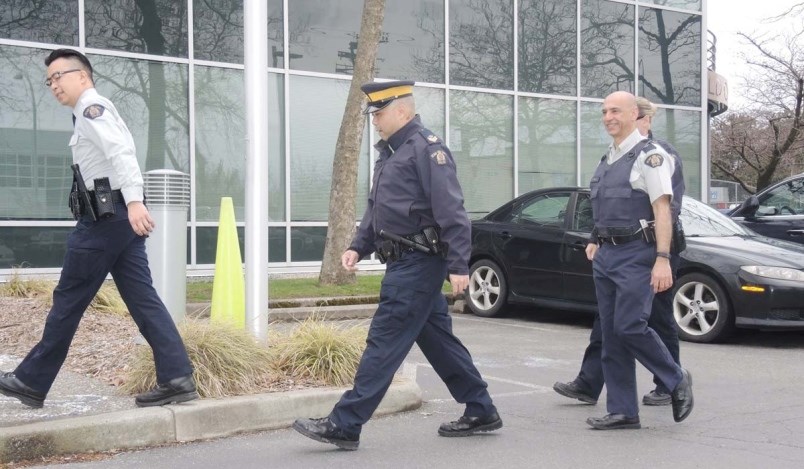Members from Richmond RCMP, along with their colleagues throughout Canada, have voted to unionize.
It is still unknown, however, how much more it will cost the City of Richmond once a collective agreement is hammered out.
Close to 15,000 National Police Federation (NPF) members took part in a cross-country certification vote conducted by the Federal Public Service Labour Relations and Employment Board (FPSLREB).
With a 97 per cent majority vote, the NPF is now able to begin collective bargaining with the federal government, and on July 15 took the first steps in the process by serving the Treasury Board with a notice to bargain.
“That’s a fairly strong mandate. That’s a very decisive vote result from the membership,” said Bryan Sauvé, the federation’s co-chair.
The RCMP have been working to unionize since 2015, when the Supreme Court ruled that Mounties have the right to engage in collective bargaining, just like other B.C. police forces.
But the RCMP’s federation, which formed in February 2016, is heading into “uncharted territory,” said Sauvé, explaining that other police organizations, such as the Vancouver Police Union, have been around for decades, and have years of collected data which allows them to prepare a proposal and start negotiating straight away.
The organization needs to submit a request for disclosure in order to collect the data required to prepare a proposal that’s “comparable in the police universe,” said Sauvé, so the first phase may take some time.
One of the main points that the federation wants to hammer out is pay disparity, said Sauvé. While first-class RMCP constables earn the same across the country, it’s still about $14,000 less than what a first-class constable in Vancouver, Delta or Victoria is paid.
“Within the B.C. Police Association, all of the 11 municipalities, they’re about the same. They’re sitting within $500 - $1,000 of each other, which is considerably more (pay) than a member in Richmond,” Sauvé said.
In 2017, Richmond RCMP appeared in solidarity – covering up the yellow stripe on their pants – with a fellow RCMP member on the Sunshine Coast who publicly protested national pay discrepancy.
The federation will also address issues of adequate and consistent training, benefits and staffing levels across detachments.
With unionization, the cost of RCMP policing will likely increase, although by how much is unknown, said Sauvé.
“Policing is a cost, public safety is a cost and municipalities have to decide whether or not the RCMP is the police force that they want,” Sauvé said.
According to the B.C. government, the federal government covers 10 per cent of RCMP costs in municipalities with populations over 15,000.
In a statement to Richmond News, the Richmond city spokesperson Clay Adams said that the city isn’t able to comment on the collective bargaining process between the federal government and the NPF.
“However,” Adams said, “funding for policing remains an integral part of the City’s annual budgeting process and we will continue to work closely with the RCMP to maintain Richmond as a safe and welcoming community.”



